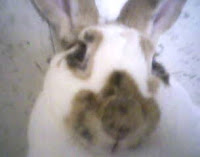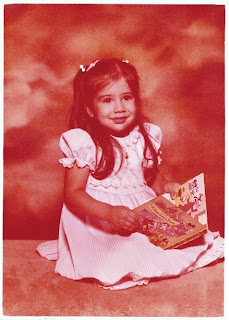In Anthony Burgess’s 1986 introduction,
A Clockwork Orange Resucked, he says, referring to the “moral lesson” in his book, that it is “the weary traditional one of the fundamental importance of moral choice.” He makes a vivid example of this with Alex, the protagonist of my latest assignment. Alex is a bad bad kid. He is not likable. He does however illustrate that man, left to his own choices, can be judged based on the merits or relative lack of goodness of his actions. If man is an automaton, having had his ability to choose good or evil taken from him, he is without either virtue or guilt.
After he has gone to prison for murdering an old woman, Our Humble Narrator is chosen for a kind of reconditioning program. The directors of this program seat him in front of a screen, tape his eyes open and force him to watch movies of horrific violence and murder, set to classical compositions, having been injected with a serum that makes him feel violently ill. Simple avoidance response. He’s being hardwired to equate what he hears and sees with great discomfort. In addition to providing Stanley Kubrick with what became an iconic little bit of celluloid, this laid the groundwork for an interesting bit of character/reader transformation.
When we start getting to know Alex we learn that he enjoys classical music. He describes it to us: “The timps rolling through my guts and out again like candy thunder. Oh, it was wonder of wonders...I was in such bliss, my brothers.” It actually brings him to sexual release, seeing in the music the faces of the men he’s beaten, their blood, and hearing the screams of women he has raped. The music moves him, however twisted the reasons, and he finds joy in it. As much as his destructive actions, this too is a decision, to find his own appreciation for it and it was his to corrupt or cultivate. Once his reconditioning has him released back into the world, he eventually ends up in a record shop, listening to Mozart … and feeling violently ill. His new chemically imposed morality has chained Mozart and friends to his body’s physical reactions. If he listens to music, he’ll feel so sick he wants to die.
I love classical music. I don’t say it lightly. In the way of loving something for how it makes you a better person, I love it. Because of this love I should have rejoiced when it was taken from Alex. Out if his filthy hands and now a source of pain. My reaction was the opposite. I pitied him and hated that anyone thought it was their right to take it from him (there is that reader transformation I’m talking about). I never thought I would feel anything other than revulsion towards Alex. He is no less a monster for his reconditioned state. He is no less a murderer or rapist. It is the ingrained belief that the right of man to choose his own mind is sacrosanct, inviolate, that led me to his defense. They took away his mind, his heart and his reason to live when they took what made him himself. Upon realizing that he could no longer enjoy music he tells us, “What I’d forgotten was something I shouldn’t have forgotten and now made me want to snuff it.” He eventually is driven to suicide, and his parents cry for him instead of for what he has become, gathering around his hospital bed and asking him to come home. Once his ability to choose evil is conditioned out of him, Alex is suddenly a sympathetic character, a victim.
From a twisted, murdering, sociopathic son-of-a-bitch to sympathetic victim. Not an easy trick.
A lot has been said about this book and the movie, about the language and the violence and the morality of government and social intervention. Burgess has his own words about it, in the introduction saying: “Life is sustained by the grinding opposition of moral entities,” That is, to oversimplify the matter, good versus evil. Life is our struggle between them and the absence of that struggle is a void. He continues, “It is as inhuman to be totally good as it is to be totally evil.” Those who do not understand this are as guilty of evil as those they would “cure” of it; what else can you say of a person who attempts to take a man’s humanity from him and tells him he does him favors?
I don’t know if anyone can like this book. I don’t think I did. It wasn’t difficult and I didn’t mind the violence so much as the feeling that I was supposed to be getting some sick, childish thrill from living it vicariously. That being said, it does give the reader a lot to think about in the way of their own reactions. I was genuinely surprised by my eventual empathy towards Alex. It was interesting to find that my defense of personal freedoms is stronger than my disgust for any one character. Not a surprise, but interesting, and worth the read to discover.
 Results
Results:
Title:
A Clockwork Orange, which was originally two other titles, I can explain.
Author: Anthony Burgess, which was originally Machiavelli and Twain. I had to be able to read Friday's book on the bus owing to a certain New Movie coming out. My copy of
The Prince was stuck in my laptop so, a substitution had to be made.
Page count: 192
Time: Almost two hours, riding over and back on the 7. In an example of art imitating life, the 7 runs through patches of hoodlum territory and I had front line seats to two shouting matches and one kid shoving an old man. Ah, South Philly.
Saturday:
Matilda, on recommendation.











